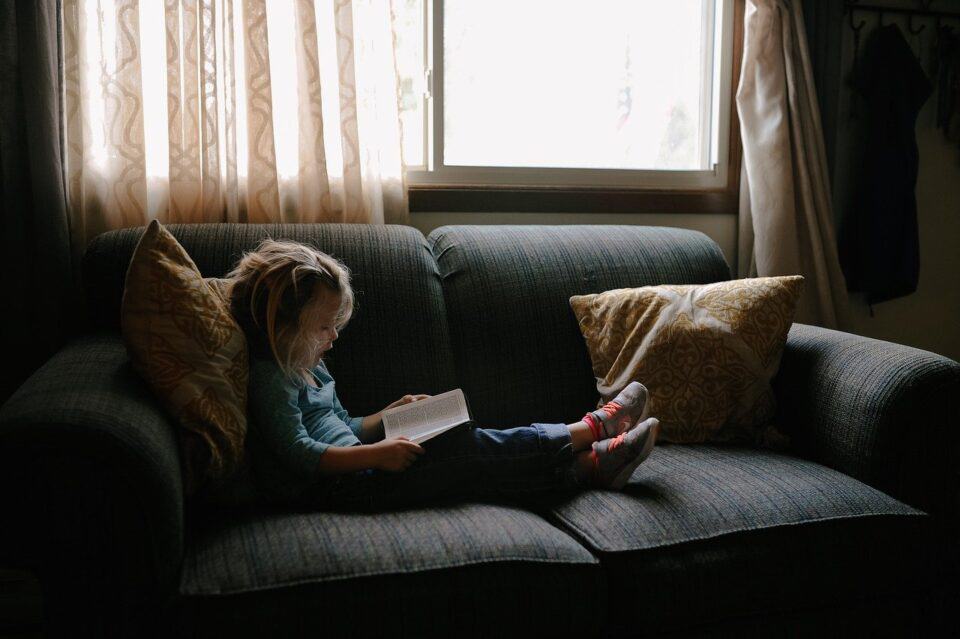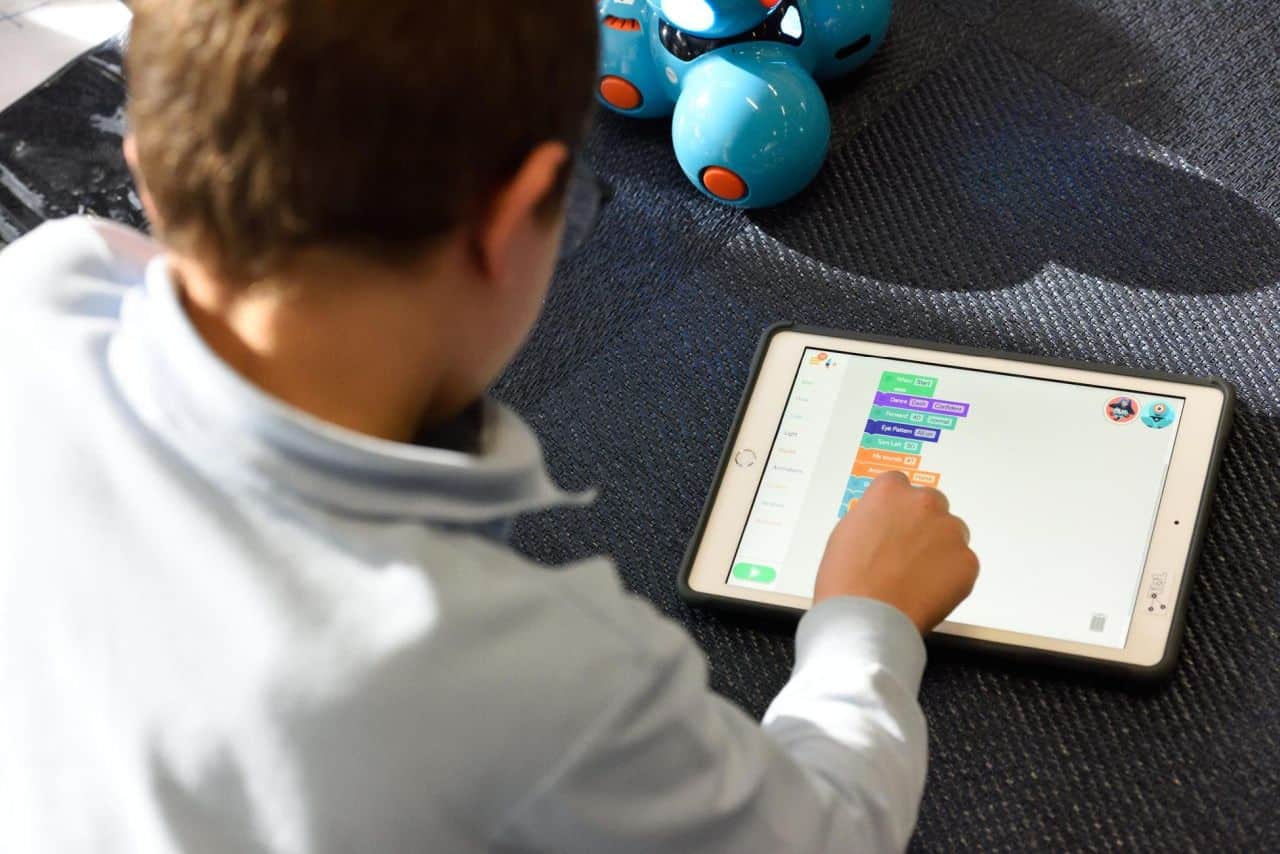Thanks to the COVID-19 pandemic, many schools across the country will be going “remote” this year, at least for a portion of the time. Even some of the biggest colleges and universities in the world, including Harvard, are offering only remote classes for the first semester.
But, many smaller elementary and high school districts are also opening and offering an eLearning option, leaving it up to parents to decide what is best for their children.
Just because this pandemic has impacted everyone’s lives, however, doesn’t mean that more “normal” issues can’t still arise this school year. Whether you choose to send your child back for in-person learning or homeschool them, there are a few things you should keep track of.
One of the most important things is their eyesight.
The CDC suggests that over 36% of girls (6-17) need glasses or contacts, and over 29% of boys the same age do, as well. One of the best ways to tell whether your child needs glasses is to take them to an eye doctor for an exam. But, there are some things you can do before you make an appointment to determine if they might be having trouble seeing.
Let’s look at a few of those signs, and what you should pay attention to in order to determine if your child might need glasses or contacts.
1. They Are Squinting
Squinting is one of the most obvious and noticeable signs that your child might need glasses. If you see them squinting a lot at home when they are trying to see something in the distance, it could be a sign that they have a refractive error. That simply means that their eyes can’t focus on a specific image as well as they should. Typically, that image is far away.
Your child might only squint for a few seconds at a time until an object is in focus. If it’s something they know they have to do frequently in order to see, it might start to become second nature to them and they won’t even realize they’re doing it. That’s why it’s so important, as a parent, to pay attention to those subtle signs and take squinting seriously.
So, when your child is in school and they have to squint to see the teacher or a blackboard in the front of the room, it could start to affect their performance in school. Or, they may get tired of squinting and simply “give up,” which will also impact their performance. Pay attention to whether they squint while they’re at home, and if it’s typically to see things that are far away.
2. They Rub Their Eyes A Lot
Most people assume that when a child rubs their eyes, it’s because they are tired. While that can sometimes be the case, it could also be caused by eye fatigue, not sleepiness.
If your child is straining their eyes all day to be able to see at school, or at home while they’re learning, it could cause a burning or “tired” sensation just within the eyes themselves. As a result, they might start to rub at their eyes in order to soothe some of that burning sensation or to wake them up. Keep in mind that it’s incredibly important for your child to get enough sleep. So, before jumping to any conclusions, make sure they are getting an adequate amount of sleep each night, and not spending all of their time on an electronic device before bed (as this can cause poor sleep quality). If you know that your child is getting plenty of rest and shouldn’t be physically tired, but they keep rubbing their eyes, it’s a good idea to get their eyes checked out by a professional.
3. They Complain About Headaches
Headaches can be another sign of eye strain. If your child comes home from school complaining about a headache or pain in their eyes, it could be because they have fatigued them at school by trying to focus on things they are having trouble seeing.
Frequent headaches can also make your child want to take naps or go to bed early, simply to get the pain to subside. Of course, you can give them the appropriate medications for a headache, but that isn’t a permanent solution, and it isn’t dealing with the root of the problem.
It can be difficult, as a parent, to see your child in any kind of pain or discomfort. But, don’t automatically start to worry if your child has frequent headaches. An eye exam can help to determine the cause, and getting your child fitted for glasses or contacts could help to eliminate those issues right away.
4. They Hold Electronic Devices Too Closely
If your child has a cell phone of their own, or a tablet, you might already be worried about them spending too much time on it. The same goes for watching too much television. While your parents might have told you not to sit too close to the TV when you were younger, seeing your children do so could actually mean they already are experiencing vision issues.
The resolution on most of today’s electronic devices is sharp enough that it doesn’t require anyone to have the device just a few inches from their face. Bringing an object closer tends to make it bigger and clearer. So, if your child is doing that with a device that is meant to be seen at a slight distance, they could be struggling with their vision.
Additionally, looking at devices that closely could put an extra strain on their eyes. So, it’s important to get a vision diagnosis quickly before more damage is done.
5. They Cannot Concentrate On School Work
Vision problems can quickly show up as a lack of focus on school work, for some kids. It might start in the classroom if they’re having trouble reading the teacher’s instructions. It could also carry over into homework or even homeschool learning if they need to look very closely at a piece of paper or a book in order to see it clearly.

Obviously, having to strain to see for long periods of time would get frustrating for anyone. That’s especially true for children, who may have a shorter attention span, to begin with.
So, if your child is struggling with their school work, don’t automatically assume that they don’t get it or they simply don’t want to do it. Talk to them about why they might be struggling. If they indicate that they can’t focus or they are having trouble seeing, you can set up an eye exam for them.
Why Strong Vision is Important for School
Whether you’re homeschooling your kids this year or sending them back to school in-person, it’s so important to make sure they have strong vision and aren’t struggling to see properly.
If you do notice any of the signs above, it’s a good idea to get your child’s eyes checked out by a professional. While some children might initially be against wearing glasses, there are so many unique design options nowadays, that they can pick out frames that fit their personality and sense of style. You can even look at an online shop with them for glasses, so they can choose the styles that appeal to them.
By making sure your child can see clearly, you will be setting them up for success this school year. They will be more comfortable, be able to focus, and they won’t struggle with as many headaches or eye pain. Most importantly, they will be able to enjoy their school year during these uncertain times, which is incredibly important to their overall wellbeing.
